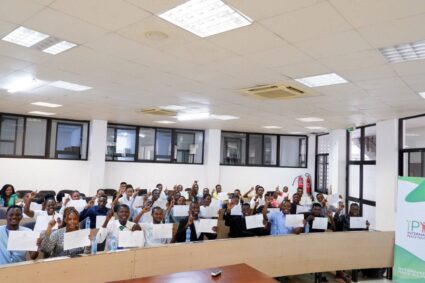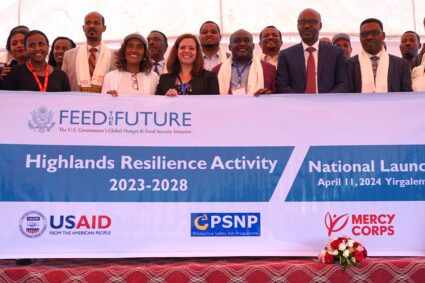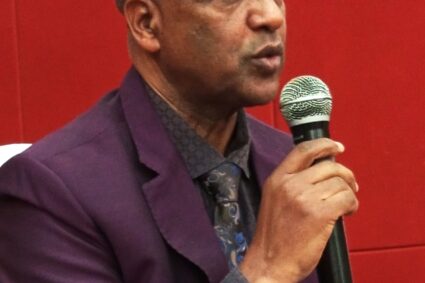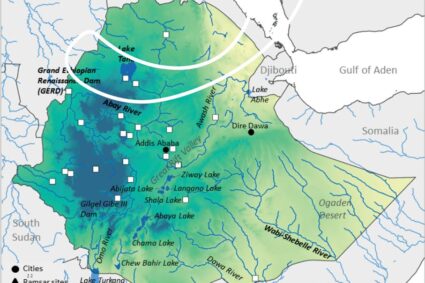
By Ayele Addis Ambelu ; +251918718307 ayeleradio@gmail.com

Self Help Africa is working with Bore Bako and Ambo Farmers’ Cooperative Unions (FCU) and their member cooperatives to enable smallholder farmers
to become better integrated into the maize value chain in the Ambo Zuria, Bako Tibe, and Toke Kutaye districts of the Oromia region.
Building on its Smallholder Support Scheme project (2015-2018), The Feed the Future project aims to increase maize marketing and dietary diversity among members of the two unions and their member cooperatives.
This will be achieved through training on post-harvest management practices, establishing a contract-based forward marketing system between farmers, targeted primary cooperatives, and respective FCUs, training on marketing, facilitating business coaching for primary cooperatives, providing technical support on the set-up and management of revolving funds for threshers and the establishment of commercial threshing services, organizing business to business meetings among maize value chain actors, providing business management and cooperative leadership training for the targeted FCUs and respective cooperative members, and creating linkages with local financial institutions.
These activities will help smallholders increase the volume, quality, and value of maize aggregated and sold. They will also enhance smallholders’ capacity to engage in profitable maize marketing. They build the governance, business, and leadership capacity of the unions and member cooperatives/farmers, helping to establish their position within the target communities as centers for aggregation, marketing, and other services.
Ethiopia’s agricultural extension system is heavily dependent on Farmer Training Centres (FTCs) and trained Development Agents (DAs) to provide
extension support to farmers.
Despite the vast responsibility, their level of functionality varies greatly. Most 12,500 FTCs established over the last decade cannot provide the expected services to farmers at their full potential.
The Climate Change: Capacity Building of Farmer Training Centre project aims to build the capacity of DAs and FTCs to disseminate information and training on improving soil fertility, one of the significant constraints to agricultural productivity.
The Lake Ziway catchment is located in the Central Rift Valley, one of Ethiopia’s most environmentally vulnerable areas. The lake has been degraded due to natural processes and human activities over the past three decades. As a result of increased land degradation over time, agricultural productivity has decreased and worsened food insecurity and poverty for those living around that area. The Lake Ziway catchment is also very vulnerable to climate change and frequent drought as they encompass dry land areas. If current trends continue, there is a threat that Lake Ziway will dry up completely.
Diversified livelihood options and income sources, improved the capacity of communities and Local Government to manage natural resources, and Improved smallholder access to services.












